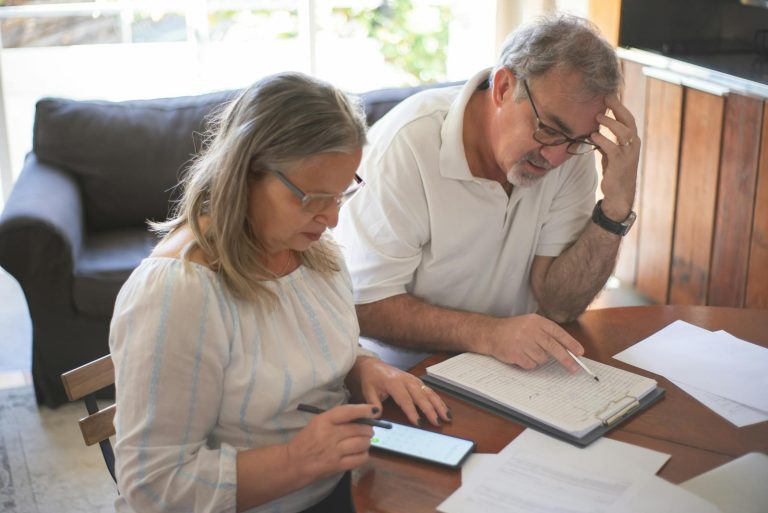When a married couple owns property as tenants by the entirety, their divorce can raise many important questions. What happens to the property? Who gets to keep it, or will it need to be sold? At Tampa Divorce Attorney, we have years of experience handling such cases. Let us guide you through this complex situation, ensuring your rights and interests are protected.
From the point of view of property ownership, when a married couple who owns property as tenants by the entirety divorces, the ownership automatically converts to a tenancy in common. This means each person now owns an individual share of the property.
Understanding Tenants by the Entirety
Tenants by the Entirety is a legal concept where a married couple jointly owns property, and upon the death of one spouse, the surviving spouse automatically inherits the entire property.
In basic terms, this means that both spouses have equal ownership of the property. If one spouse dies, the other automatically inherits it. Tenants by the Entirety offer certain protections for married couples, like protecting the property from creditors of just one spouse.
Let me explain, only married couples can have this type of ownership, and it can’t be changed without both agreeing. This ownership is only possible if the property is bought during the marriage with the intent to share it this way. Couples need to understand this, as it affects their estate planning and financial security.
Effects of Divorce on Joint Property
Divorce often results in the division of joint property, which can be a complex and contentious process.
At the simplest level dividing things like houses, cars, savings, and investments during a divorce can be really challenging. It often affects both people emotionally and financially.
Many times, deciding who gets what can lead to arguments. These disagreements might even end up in long and expensive court battles. Sometimes, couples have to sell some of their belongings to fairly split them.
Divorce can also impact taxes. When splitting assets, moving things between spouses might bring tax issues. So to speak, for instance, selling a shared house could mean paying capital gains taxes. It’s very important to think about these tax impacts before agreeing on who gets what.
Emotionally, dividing shared items can be tough. Couples might feel sad losing things that were once dear to them, making the process harder and taking longer to heal after the divorce.
Legal Changes After Divorce
Repeating past discussions, after divorce, legal documents like wills, trusts, and power of attorney often require significant updates.
In concise terms after a divorce, you might need to change the ownership of property, such as updating deeds or titles. You could also need to change child custody and support agreements to fit your new situation. Health insurance and who gets benefits from your accounts might need updating, too.
In basic terms it’s important to review and update all your legal documents to make sure they match your new circumstances. If you don’t make these changes, it could lead to problems later on. It’s a good idea to get legal advice to understand what changes you need to make after a divorce.
Options for Splitting the Property

Emphasizing our past talks, property can be divided using methods such as physical division, selling and sharing proceeds, or co-owning with agreed terms.
When it comes down to it, one way to handle the property is to sell it and share the money between the owners. Another way is for one owner to buy the other’s share. Owners can also split the property into different sections, so each person gets a part.
To outline briefly, when deciding, consider things like the property’s value, any debts on it, and what each owner prefers. Each choice has good and bad points, so think carefully. Talking to a lawyer or financial expert might help you decide what’s best.
Protecting Your Property Rights
Combining earlier ideas, safeguarding your property rights helps maintain your autonomy over your possessions, ensuring your investment is protected and can increase in value.
In general, this means taking steps to protect your belongings from theft or damage. Here are some simple ways to do that:
- Use good locks and security systems to secure your property.
- Keep valuable items in a safe place and don’t leave them unattended.
- Make sure you have insurance to cover unexpected events.
At its simplest – Stay alert and be aware of what’s happening around you to avoid any threats to your property. Take care of your things regularly to make them last longer and avoid damage. If there are any disputes about property ownership, get legal advice to solve the problem.
By being proactive about protecting your property, you can have peace of mind and keep your belongings safe.
The Final Analysis
Combining earlier ideas, in the event of a divorce between a married couple who owns a property as tenants by the entirety, the property will be divided in accordance with the laws of the state where the divorce is taking place.
What Tampa Divorce Attorney is reminding you to think about is, typically, the property will be sold and the proceeds will be divided between the two parties unless an agreement can be reached otherwise.







